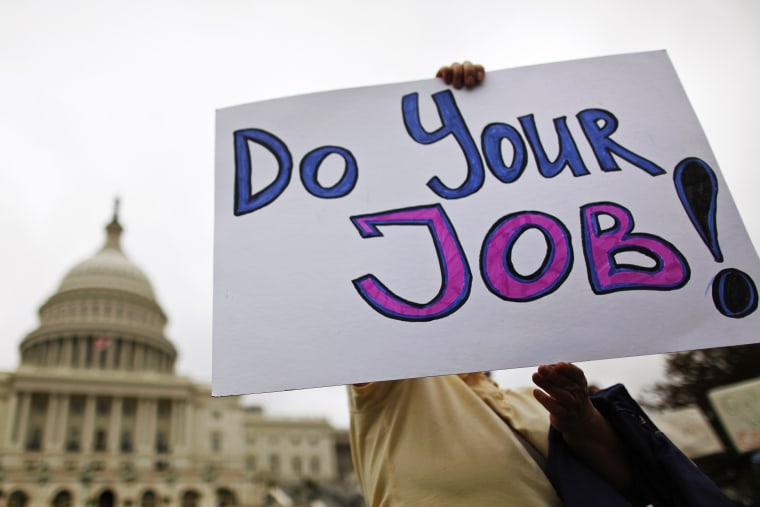Democrats generally consider Rep. Lee Terry (R) of Nebraska to be one of the House Republicans' most vulnerable incumbents, and they very nearly defeated him last year. For 2014, state and national Democratic officials -- including Vice President Biden himself -- reached out to a popular Omaha city councilman, Pete Festersen, and urged him to seek the seat.
Festersen declined, citing his two young children. But last week, something interesting happened: the councilman changed his mind.
Democrat Pete Festersen is in. The Omaha city councilman says he will seek Republican Lee Terry's congressional seat in 2014, after initially saying he would not run. His entry into the race all but guarantees a tough re-election battle for Terry, who is acknowledged as vulnerable even by Republicans.In August, Festersen had said it was the wrong time for his family to take on a political campaign. He has two young children.But since then, he said, more people have encouraged him to run and his family has been supportive.Festersen said the partial government shutdown -- and not Terry's controversial comments about his paycheck during the shutdown -- was the tipping point.
Everything you've heard of late about 2014 is true. Polls show Republican support collapsing, but the midterm elections are still a year away, and it's too early to make firm predictions.
But this story out of Omaha offers an important reminder about the consequences of the Republican Party's ongoing disaster -- they haven't ensured electoral setbacks next year, but they've certainly laid the groundwork for defeat.
In Festersen's case, he didn't intend to run, but Republican radicalism changed his mind. "Like most people, my frustration has grown by the day over the last month, with the government shutdown and the brinkmanship on the debt ceiling," he told the Obama World-Herald. "Change is needed. And I felt it was my responsibility to be that change."
What's more, the incumbent's oafishness probably didn't hurt -- Terry recently boasted that he would continue to accept his congressional paychecks during the shutdown because he has a "nice house."
Gaffes notwithstanding, Rep. Steve Israel (D-N.Y.), chair of the Democratic Congressional Campaign Committee, recently told Greg Sargent that the shutdown would boost the party's recruiting efforts, persuading reluctant candidates to run for the good of the country.
There's some preliminary evidence to suggest the Democratic leader is correct.
Postscript: In case you're wondering how a GOP incumbent in a "red" state in Nebraska could be vulnerable, note that this is the state's most competitive district. In 2008, President Obama won Omaha.
